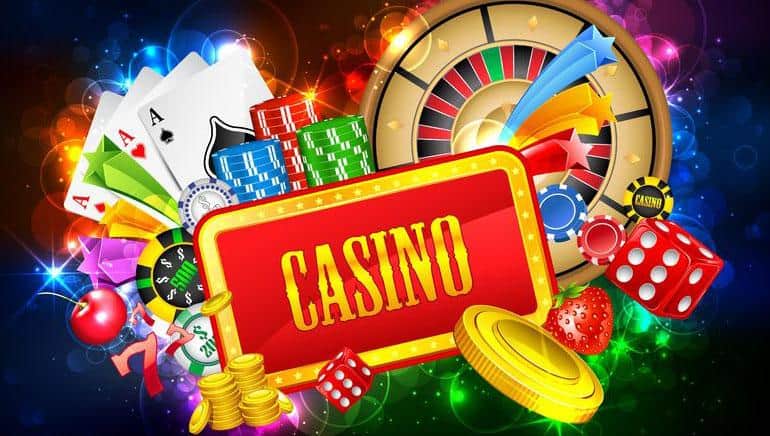
Casino games have captivated enthusiasts for ages, luring them into a world of excitement, chance, and prosperity. From the sparkling lights of video slots to the intense nature of poker games, these games offer a special combination of fun and exposure. However, beneath the facade of this sparkle and style lies a complex interplay of calculations that determines every outcome and action made within the gambling establishment.
Grasping this link between gambling games and math merely enhances the gambling experience but can also help players make informed decisions. Whether you are a casual gambler or a passionate enthusiast, recognizing the math concepts at play can provide important knowledge into chances, probabilities, and strategies, ultimately affecting how one approaches these games of chance.
Statistical Likelihood in Gambling
In the realm of casino activities, mathematical probability plays a vital role in determining outcomes and guiding player choices. Every activity has a specific set of regulations and a particular likelihood framework that shapes its mechanics. For instance, in games like roulette, players must understand the odds of landing a specific number or shade. nhà cái F168 The probability of specific events occurring can be computed, and this knowledge can substantially affect wagering tactics.
Gambers also need to be aware of the casino advantage, which is the statistical advantage that casinos hold over players in the long run. This advantage differs across various activities. In 21, skilled players can use strategies to reduce the casino advantage to as little as 1 %, while in games like slot machines, the house advantage can be significantly greater. Understanding the casino advantage allows gamblers to make informed decisions about which activities to play and how much to bet.
Moreover, probability is crucial in the concept of danger versus reward in gambling. Each wager carries a specific danger level, and players must assess the possible payout against that risk. Games like poker require players to not only assess the odds of their personal hand winning but also to evaluate the likelihoods of their opponents’ hands. By utilizing mathematical concepts to their strategy, gamblers can enhance their odds of success and engage more strategically in the exciting realm of gambling games.
Anticipated Value in Gambling Games
When discussing casino activities, one of the fundamental concepts rooted in math is the anticipated worth. This numerical metric helps players grasp the possible outcomes of their wagers over time. In basic terms, anticipated value (EV) calculates the average amount a gambler can anticipate to win or suffer per bet if they were to play the activity many times. Each game has its unique EV, affected by the probabilities and the casino advantage, which indicates the benefit that the casino holds.
For example, consider a game like the roulette game. The expected worth can be calculated based on the specific bet made. If a player bets on a individual number, the payout is 35 to 1, but the actual chances of success that wager are 1 in 37 (in European the roulette game). This leads in a detrimental anticipated value, showing that, on the whole, gamblers will lose money over a period when playing this type of wager. Grasping this concept allows gamblers to make better informed decisions about which games and bets may be more favorable.
Additionally, the investigation of anticipated worth can lead to improved bankroll management. Players who comprehend the math behind their games are often able to set realistic goals. By acknowledging their possible deficits and gains, they can modify their playing strategies accordingly, which may improve their overall gambling experience overall. As a result, anticipated worth serves as a critical tool for both novice and seasoned players to navigate the often unpredictable nature of gambling games.
Approaches and Chances: The Arithmetic Behind Winning
In casino games, understanding the probabilities is vital for players attempting to maximize their chances of success. Each contest has its own unique set of probabilities that determine winning outcomes, and these statistics are often located in the rules of the game rules or reward charts. For instance, in games like 21, players can improve their odds through methods such as counting cards, which depends on arithmetic concepts to gain an upper hand over the establishment. By acquainting themselves with the probabilities, gamblers can make more educated determinations on when to bet and when to give up.
Additionally, the principle of average value plays a major part in gaming tactics. Expected value calculates the typical outcome of a stake over the long run, allowing participants to assess whether a certain stake is valuable taking. For example, slot machines have a fixed return percentage, which can indicate the expected profit a player can expect on their wagers. By choosing games with higher expected values, gamblers can lessen the casino edge, enhancing their possible rewards in the future.
In conclusion, successful players often employ a mix of chance and math strategy to improve their gaming experience. While chance can’t be controlled, managing a staking plan based on mathematical insights can lead to more positive results. By making use of techniques such as bankroll management and picking games, gamblers can utilize math to maneuver through the unpredictable nature of gaming, making the most of their efforts and investments at the gaming tables.
